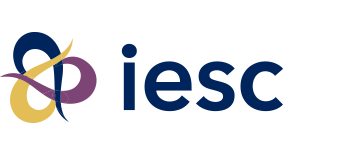NBDAC Feasability Study (Full Report)
USAID and Afriland First Bank sign agreement to increase agricultural lending in Liberia
MONROVIA ' In a signing ceremony on Tuesday, October 13, at the Mamba Point Hotel, representatives from the USAID mission in Liberia and Afriland First Bank Liberia signed a risk-sharing agreement between the bank and USAID's Development Credit Authority (DCA). The agreement is designed to increase agricultural lending in Liberia.
From left: Hamadou Bayo (Afriland), Watchen Bruce (IBEX Program), and Anthony Chan (USAID).
In his brief remarks, USAID Liberia's mission director, Anthony Chan, highlighted the aid agency's commitment to working with Liberia's micro-, small-, and medium-sized enterprises to grow the Liberian economy. He hoped the new partnership with Afriland First Bank would complement other USAID-sponsored programs focused on private sector growth and expanding employment opportunities.
According to Chan, USAID programs have helped 137 enterprises to win 342 contracts worth $31 million. 'Today, we want to expand our efforts to continue to unlock the productivity of the private sector by providing credit through mechanisms such as the DCA we have signed with Afriland First Bank,' Chan said. 'This partnership will go a long way towards helping to create jobs and grow the Liberian economy.'
Under the agreement, the U.S. Government and Afriland First Bank will share the risks in piloting new financing options to businesses. Afriland First Bank joins International Bank Liberia Limited and Ecobank Liberia Limited as the third DCA partner bank in Liberia.
Agriculture is one of the most productive parts of African economies, and financing agriculture is one of Afriland's top priorities. 'As an African bank, we are convinced that one of the vehicles for development is finance, ' said Hamadou Bayo, managing director at Afriland, who signed the new agreement. 'We are grateful to USAID and IBEX for supporting us through [the] DCA and believe strongly that we have a lot more to do together.'
USAID implements the DCA program in Liberia through the Liberia Investing for Business Expansion Program, or IBEX. IBEX offers technical assistance and capacity building support to local businesses and commercial bank staff, including training, coaching, and loan facilitation for business growth and expansion. The DCA seeks to improve the commercial viability of underserved markets so that lending and investment continue long after the program ends.
Mrs. Watchen Bruce heads the IBEX Program, and she fully supports the addition of a third DCA bank in Liberia, and IBEX remains committed to the Liberian government's development agenda. 'Having another financial institution ready and willing to work with these small and medium businesses will further the growth of the private sector and help to move Liberia's economy forward.' Bruce said.
The deputy commerce minister for industry, Ellen Pratt, as well as leaders of other USAID-sponsored programs in Liberia and representatives from DCA partner banks also attended the event.
###
This news release is made possible by the support of the American people through the United States Agency for International Development (USAID). The contents are the sole responsibility of IESC and do not necessarily reflect the views of USAID or the United States Government.
November 6, 2015/by actualize studio

